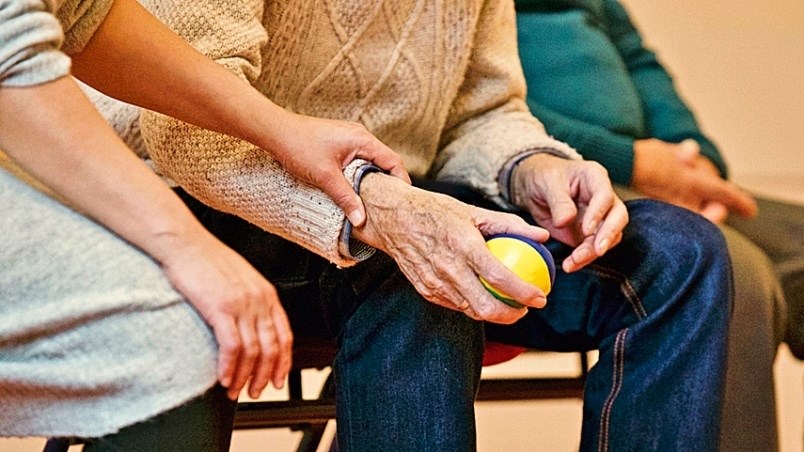No matter how old a person is, it’s true that everyone can be forgetful at times.
Don’t you hate it when you can’t remember the name of the actress that you love? You can see her face, but can’t remember her name. But not to worry, the Alzheimer Society of B.C. states, “that almost 40 per cent of people over the age of 65 experience some form of memory loss. When there is no underlying medical condition causing this memory loss, it is known as “age-associated memory impairment, which is considered a part of the normal aging process.”
But with dementia there is a more pronounced decline. The Alzheimer society’s website defines dementia as an overall term for a set of symptoms that are caused by disorders affecting the brain. Symptoms may include memory loss and difficulties with thinking, problem solving or language, severe enough to reduce a person's ability to perform everyday activities.
A person with dementia may also experience changes in mood or behaviour. Dementia is progressive, which means the symptoms will gradually get worse as more brain cells become damaged and eventually die. There are many types of dementia, including Alzheimer’s disease, vascular dementia, Lewy body dementia and frontotemporal dementia.
A diagnosis of dementia may be devastating to a person, their loved ones and the community. It is estimated that 70,000 people in British Columbia are living with some form of dementia and this number is expected to double by 2031.
There is often a stigma attached to dementia. Everyone has a responsibility to help make their community a dementia-friendly place. The Alzheimer society states: “Dementia-friendly communities are those which support people to be engaged and active where they work, live and play. Individuals in these communities learn how to recognize when someone has dementia and how to respond in a respectful, effective way.” A dementia-friendly community values people living with dementia and it can also positively impact caregivers.
Since 2016, the three North Shore municipalities have been working towards an action plan to create a dementia-friendly community in North and West Vancouver. The action plan evolved from the North Shore Seniors’ Health Expo held in 2016 and through a dementia-friendly survey conducted at that time.
Staff from the three municipalities, Vancouver Coastal Health, the Alzheimer society, a resident and an advocate living with dementia and a gerontologist, planned and facilitated activities such as focus groups, a dementia-friendly forum and the North Shore Seniors’ Health Expo.
In order to facilitate the ongoing work, funding was secured through the Union of BC Municipalities age-friendly communities grant program, while the Alzheimer Society of B.C. provided staff time and resources and BC Healthy Communities Society provided funding and facilitation for the project.
In addition to the planning group, a steering committee was formed with members from community groups, private businesses, libraries, North Shore Recreation and Cultural Commission, RCMP, and Squamish and Tsleil-Waututh First Nations.
A final report called Dementia-Friendly North Shore Action Plan, endorsed by the three North Shore municipalities, was produced this year.
The report identifies key priorities for moving forward including: an increase in community education about dementia, resources and services; strengthened training for staff and caregivers; provision of inclusive and supportive community programs and services; improvement in the built environments safety, accessibility and way finding (particularly to reduce risks related to wandering behaviour) and addressing caregiver needs.
Following the priorities outlined above, the report suggests actions that municipalities can facilitate individually or by working together. These include developing community education campaigns and identifying and nurturing municipal and community champions, providing training programs, providing support or adaptations so people living with dementia can continue with familiar activities, waiving fees for caregivers or others who provide support, offer and/or designating dementia-friendly recreational and cultural activities and events, improving the built environment, and mitigating the stressful situations for caregivers.
A number of other suggestions were also outlined in the report, which can be obtained at the North Shore’s different municipal halls.
A dementia-friendly community, like an age-friendly community is the kind of community I want to live in. Kudos to the North Shore for driving this initiative forward.
Margaret Coates is the co-ordinator of Lionsview Seniors’ Planning Society. She has lived on the North Shore for 47 years and has worked for and with seniors for 20 of those years. Ideas for future columns are welcome Email: [email protected].



